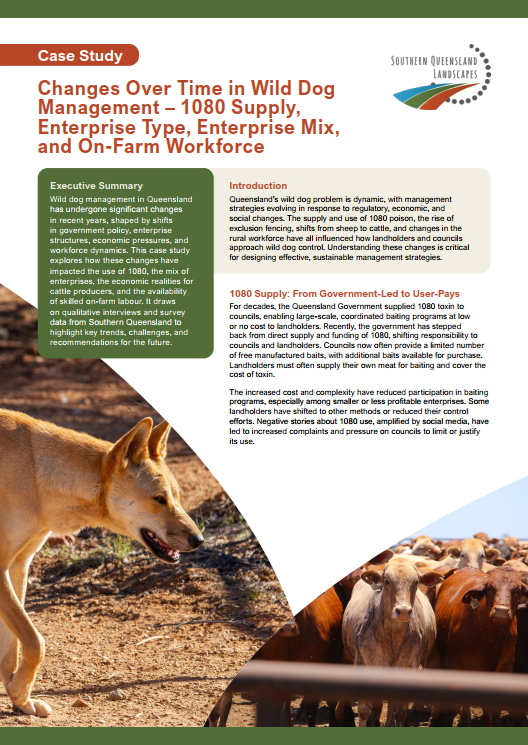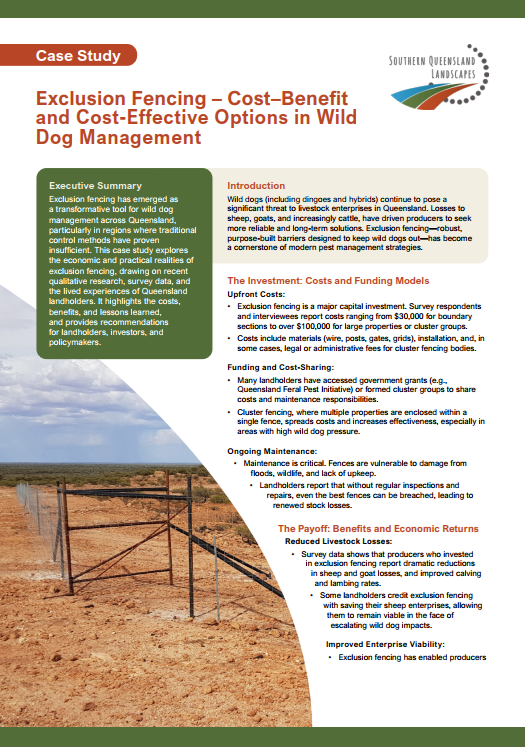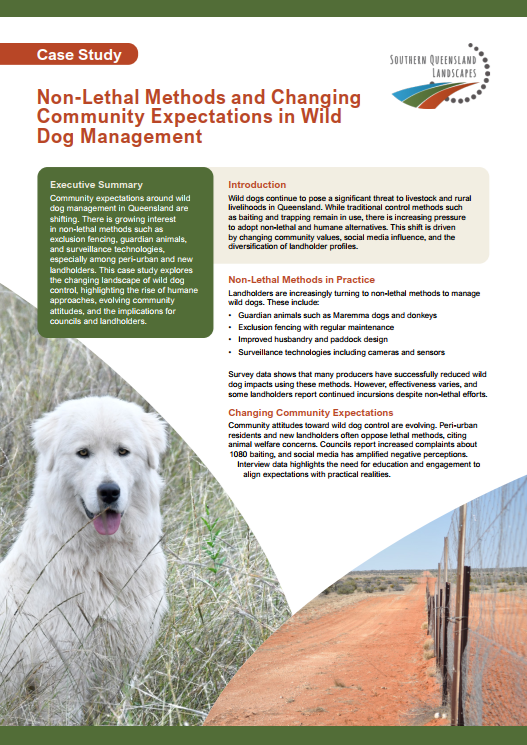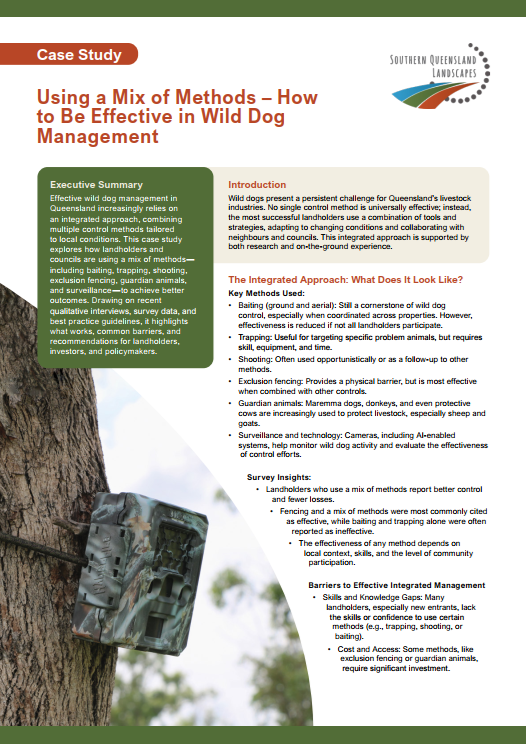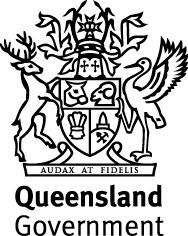Wild Dog Impacts and Management Efforts in Southern Queensland
Wild Dog Management Survey 2025
Southern Queensland Landscapes conducted a survey to gather feedback from landholders regarding the presence and impact of wild dogs on their properties.
The survey sought to understand the required effort that landholders had made over the past year to manage these pests. The purpose of the survey was to ensure that the limited resources available for wild dog management are directed towards the most effective strategies. By understanding what is working on the ground and where challenges remain, we can improve the approach and outcomes.
Thanks to funding provided by the Queensland Feral Pest Initiative, this project has made it possible to explore how landholders across southern Queensland are engaging with pest animal management practices. A key goal is to encourage and support greater participation in these efforts. The success of the initiative will be measured by an increase in the number of landholders fulfilling their wild dog biosecurity obligations. Over time, this should lead to a noticeable reduction in wild dog populations and the severe damage they cause to livestock, native wildlife, and farming operations. Additionally, a positive outcome would include more councils adopting and actively implementing Biosecurity Plans, contributing to a coordinated and sustained approach to wild dog management across the region.
Let's work together to protect our landscapes and communities from the threat of wild dogs and other feral animals.
Case Study Reports
Watch Video's on Wild Dog Management in Qld
Informative Links to Wild Dog Management Practices
List of Services
-
Wild Dog TrappingList Item 1
More humane trapping using the PAPP toxin.
-
Padded Jaw TrapsList Item 2
Trapping of wild dogs using padded jaw traps.
-
Baiting of Wild Dogs With PappList Item 3
Baiting of wild dogs with the papp toxin.
-
Wild Dog TrapsList Item 4
Wild dog traps.
-
Wild Dog and Poison Baits
Wild dog and poison baits.
-
DPI NSW - Code of Practice
Canid Pest Ejector guidelines.
Need Help Negotiating With Your Property Neighbours?
Please Watch These Video's Below...
Meet the Project Coordinator
Jayne Thorpe
Jayne is the Project Coordinator for the Queensland Feral Pest Initiative project. Jayne has an affinity for the Southern QLD region, having been born in Chinchilla and growing up on properties south of Charleville.
With most of her immediate family living in the Southern QLD region and many involved in agricultural enterprises, her interest in feral pests is personal, not just academic.
Jayne will be working with key project stakeholders across the region to identify the best ways to reduce wild dog impacts and the effort required to manage them.

